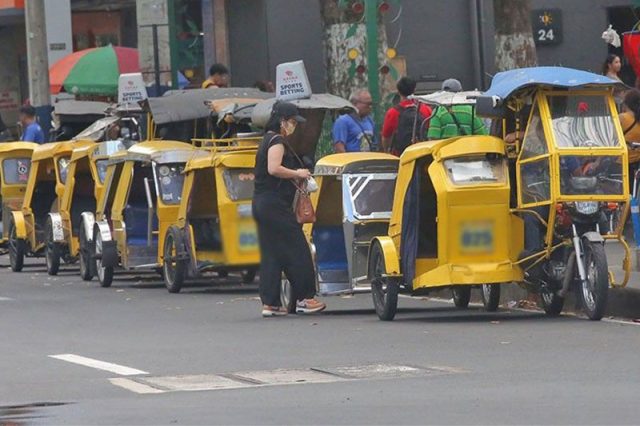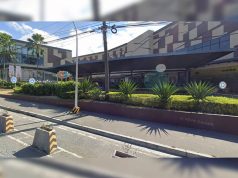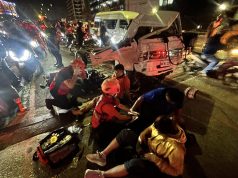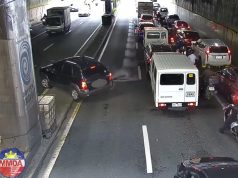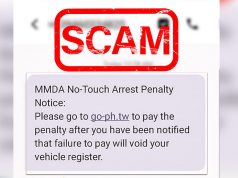The Metro Manila Development Authority‘s policy of banning tricycles and pedicabs on national roads drew criticism from some commuters who rely on these modes of transportation in their daily lives.
The MMDA on Wednesday announced that it would start penalizing certain vehicles traversing major Metro Manila roads starting April 15, citing safety concerns allegedly stemming from electric vehicle drivers’ lack of licenses.
The MMDA Regulation No. 24-022 (series of 2024) prohibits e-bikes, e-trikes, light electric vehicles (EV), pushcarts, “kuligligs,” tricycles and pedicabs from using national, circumferential and radial roads in the National Capital Region.
Several Filipinos already criticized the policy last February, when the Metro Manila Council passed the resolution.
Some said that electric vehicles should be regulated instead of banned as they serve as an alternative mode of transport for people who cannot afford cars or those who cannot rely on other public transportation.
RELATED: Pinoys’ take on why e-bikes, e-trikes should be regulated instead of banned
According to AltMobility PH director Ira Cruz, the popularity of e-trikes and e-bikes among Filipinos is “one of the manifestations of the government’s failure to answer the basic needs of ordinary Filipinos for mobility.”
“As ordinary Filipinos look for solutions, it is unacceptable for [the] government to focus its energy on restrictions rather than solutions,” he said before.
ALSO READ: E-trike popularity a ‘symptom of gov’t failure’ in addressing mobility needs — group
MMDA’s resolution also affects the traditional tricycles and pedicabs traversing major NCR roads.
This was pointed out by some commuters who rely on such transportation modes to go to their schools, workplaces, homes and other areas.
Among these are commuters who traverse Katipunan Avenue, which also serves as the route for students of the Ateneo de Manila University and the University of the Philippines Diliman.
Residents in the area, especially those without cars, also use tricycles and pedicabs to travel along the avenue.
“Katipunan Ave?! Ang hirap na nga makatawid dahil sa mga overpass, ang dami pang estudyante at residenteng mapeperhuwisyo. Ayus-ayusin niyo naman, @MMDA,” an online user wrote.
“Teh, karamihan ng mga naninirahan sa Katip ay gumagamit ng trike pa ADMU o UP. Ano plano nila ngayon para sa kanila? Kayo ba bibili ng kotse namin? @MMDA,” another user commented.
“Why are they banning tricycles along Katip, wala na ngang jeep halos eh, wtf,” wrote a different user.
“I can’t imagine na walang trike sa katips at CP Garcia. I live here for almost 24 years and sobrang helpful nila sa community namin since may ibang place na wala naman sa route or hindi talaga accessible sa mga sasakyan or jeep,” another commuter said.
“Sobrang anti-poor nitong bagong regulation niyo,” the commuter added.
Others pointed out that there have been “established tricycle stations” for years on some of the roads mentioned in MMDA’s resolution since they are the “best alternative” for those who cannot afford to have cars.
“‘Di lang trike drivers kawawa dito pero commuters din, t**gina, sino [na naman] nag-isip [nito],” a Pinoy exclaimed.
“Nung nagka-stroke tatay ko, we used a tricycle to transfer him from Chinese Gen to Jose Reyes since wala kaming kotse and hindi kayang makagalaw ng tatay ko, and syempre, dumaan siya sa Rizal Avenue since ‘yun entrance ng ospital, ta’s ngayon, iba-ban lang ng MMDA ‘yung trikes,” another Filipino wrote.
“Kuliglig, Pedicab, at E-Bike bawal sa Recto? Eh hanggang Divisoria, Recto Avenue ‘yon eh. Maramihan bumili mga tao at madalas ‘yon ang gamit na transpo pauwi. Ano ‘to, kotse o Grab pauwi? Haha, taray niyo naman,” a different user commented.
Ban not new
MMDA Acting Chairman Don Artes said that the ban on tricycles, pedicabs and motorized pedicabs is not new, citing policies that were created before in relation to the vehicles.
He said that the Department of the Interior and Local Government has issued two memorandum circulars which were incorporated into the MMDA resolution.
These are the DILG Memorandum Circular Nos. 2020-036 and 2023-195 or Prohibition on Tricycles, Pedicabs, and Motorized Pedicabs on National Highways.
The DILG Memorandum Circular 2023-195 cites that thousands of road accidents involving such vehicles on national highways have been recorded, hence the policy.
However, it said that the local government unit may exempt them if no alternative routes are available. The LGU may also provide a portion of the national highway to them as an alternative route.
The MMDA said it also took into consideration the Land Transportation Office Administrative Order No. 2021-039 or the Consolidated Guidelines in the Classification, Registration and Operation of All Types of Electric Vehicle.
Artes said that the target date for releasing the resolution’s Implementing Rules and Regulation (IRR) is one to two weeks before its April 15 implementation.
He added that it will take into consideration the position papers to be submitted by the stakeholders.
“We will incorporate in the IRR all the suggestions to address all the concerns and issues that have arisen and will conduct an information drive and campaign prior to the enforcement of the regulation,” Artes said.

